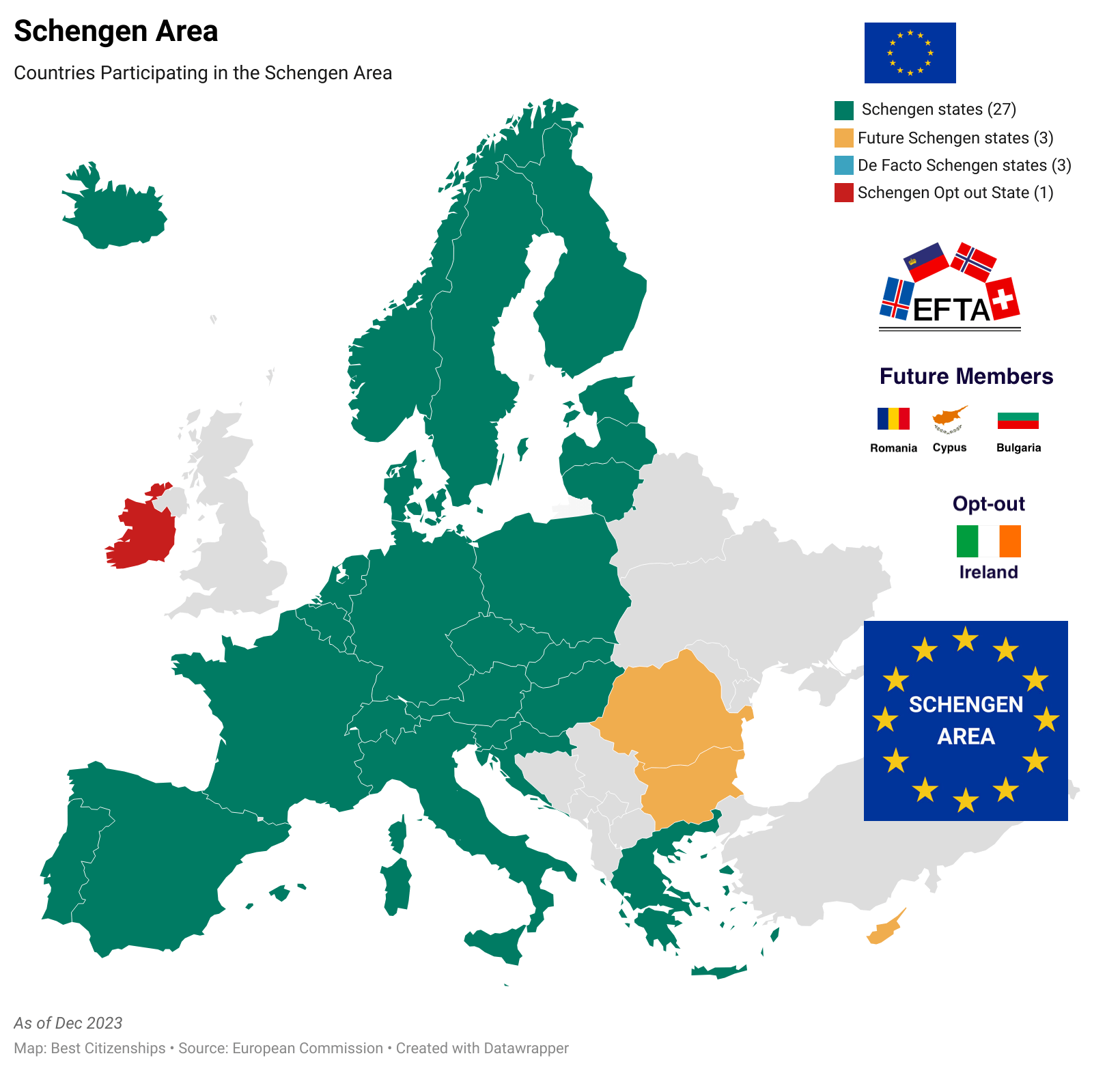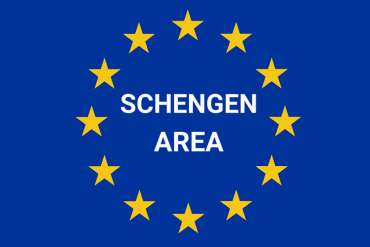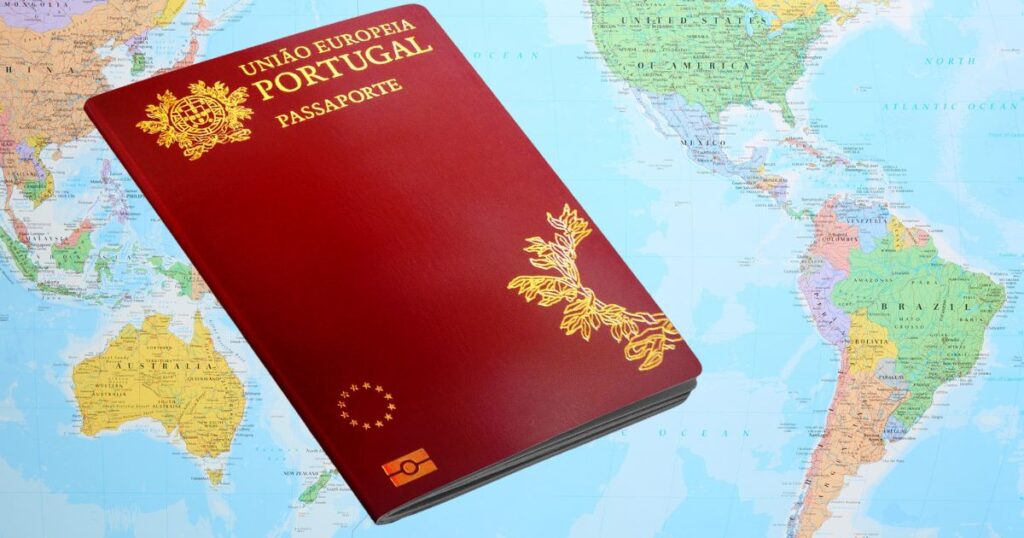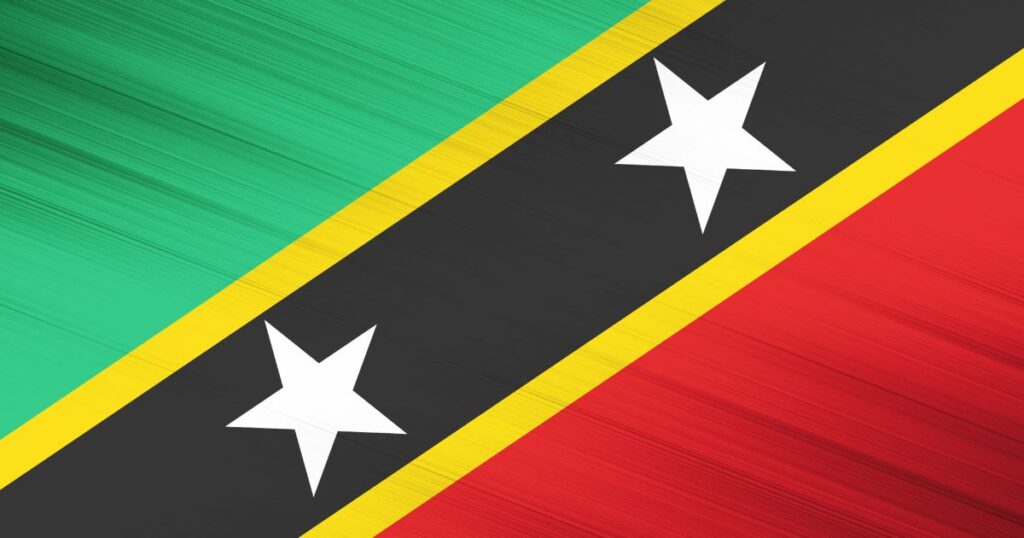The Schengen area comprises 26 countries and extends over 4 million square kilometres with a population of almost 420 million people. There are 22 EU Member States that participate in the Schengen area. The Schengen is a common travel area comprising 26 European states that have officially abolished all border controls to facilitate free movement of people and goods. The Schengen area was first established in 1985 named after small village town of Schengen, Luxembourg. It is considered as one the remarkable achievement in human history to facilitate free movement of people with open borders.
Croatia newly joined the Schengen area on 1 January 2023. This is the first enlargement over a decade and it is a significant achievement for Croatia and the Schengen area.
Which countries may join Schengen area in the future?
Four of the five remaining Member States, namely Bulgaria, Croatia, Cyprus and Romania, are already bound in part by the Schengen acquis but internal border controls with those Member States have not yet been lifted. Ireland participates in some important parts of the Schengen architecture with the exception of the acquis related to external borders and the abolition of internal border controls. They are strong candidates to join the expansion of Schengen area in the future and Ireland is a special case. Under the enlargement policy, EU Schengen states become safer and stronger with the full participation of Bulgaria, Romania and Croatia in the area without internal border controls. The EU national governments must unanimously decide to approve states to enter the border-free zone. Some member states oppose these countries joining schengen. The Commission called on the Council to further strengthen European unity and allow Romania and Bulgaria to fully join Schengen without any further delays.
1. Bulgaria
Bulgaria joined the EU on 1 January 2007, are also legally bound to join the Schengen Area, implementation has been delayed and vetoed, but huge progress has been made in the rule of law, for the schengen acquis.
2. Cyprus
Although Cyprus, which joined the EU on 1 May 2004, is legally bound to join the Schengen Area, implementation has been delayed because of the Cyprus dispute. In Nov 2019, Cyprus formally began the application process of joining the Schengen area in September and European Commission is currently evaluating the application. Cyprus needs to resolve national border disputes with neighbours.
3. Romania
Romania joined the EU on 1 January 2007, are also legally bound to join the Schengen Area, implementation has been delayed and bids rejected. Romania need to fix issues related to corruption, organized crime, rule of law and irregular migration. Austria and Netherlands have been opposing membership citing “security risks”.
4. Ireland
Ireland may opt-in to join schengen area anytime in the future if political climate changes after Brexit. Nobody knows for sure yet.
Schengen remains a crown jewel of European integration
-Margaritis Schinas
European Union vs Schengen states
EU member states should not be confused with schengen states. Being EU member state, means they dont automatically participate in schengen.

Note
- Iceland, Norway, Liechtenstein and Switzerland are four non-EU member states, they participate in schengen area..
- Monaco, San Marino, and Vatican City—are de facto part of the Schengen Area.
- The colonies or territories of Schengen member states are exempted from the Schengen Agreement. Faroe Islands, Svalbard, French, British and Dutch overseas territories also not part of schengen.
Candidate countries
These 5 countries are candidate countries to join EU in the future and negotiations are on. Once these countries become full EU member states, they are likely to join schengen area after the accession.
- Albania,
- North Macedonia
- Montenegro*
- Serbia
- Turkey
*In 2018, Montenegro Government expressed interest joining schengen area after EU accession. Montenegro is moderately prepared to apply the EU acquis and European standards in the area of judiciary and fundamental rights but made limited progress overall.
Potential Candidates
Going backwards, these are the two countries which have a clear prospect of joining the EU in the future but have not yet been granted candidate country status. Again these countries are on a long way from joining EU and schengen area.
- Bosnia and Herzegovina
- Kosovo
Schengen is the beating heart of Europe. It connects us.
-Ylva Johansson, Commissioner for Home Affairs
What are the conditions for joining Schengen Area?
Joining the Schengen Area is not merely a political decision. Future Countries must also fulfill a list of pre-conditions, such as be prepared and have the capacity to:
- Take responsibility for controlling the external borders on behalf of the other Schengen States and for issuing uniform Schengen visas
- Efficiently cooperate with law enforcement agencies in other Schengen States in order to maintain a high level of security once border controls between Schengen countries are abolished
- Apply the common set of Schengen rules (the so-called “Schengen acquis”), such as controls of land, sea and air borders (airports), issuing of visas, police cooperation and protection of personal data
- Connect to and use the SIS (schengen information system).
Applicant countries undergo a “Schengen evaluation” before joining the Schengen Area and periodically thereafter to ensure the correct application of the legislation.





